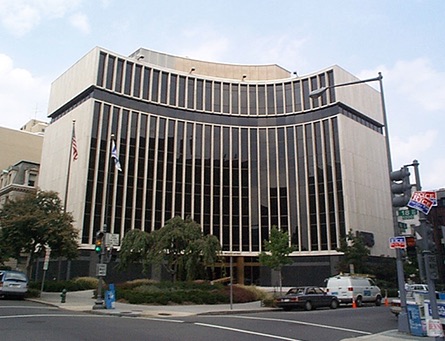NAB: FCC Repack Deadline Likely Unachievable

The smarter way to stay on top of broadcasting and cable industry. Sign up below
You are now subscribed
Your newsletter sign-up was successful
The National Association of Broadcasters says the FCC likely won't be able to fit its TV station post-auction repack plan into its 39-month deadline for doing so. It also urges the commission to reject cable operators' argument that TV stations temporarily sharing channels should not get must-carry/retrans rights.
It also said wireless bidders' failure to pony up broadcasters' auction asking prices while the FCC reduces the amount of spectrum for auction with each unsuccessful stage undercuts their "spectrum crunch" arguments for holding to a 39-month timeline.
NAB filed reply comments to the FCC on that repack, arguing that the commission has set up computer models of a phased repack transition plan that will run up against the realities of real stations with real issues. It said that 39-month deadline "reflects unduly optimistic assumptions, oversimplifies challenges, may compromise safety and is unlikely to be achievable in practice."
Related: Sinclair Equates FCC Repack Deadlines With Death Penalty
"The Commission understandably seeks to develop a repacking schedule ahead of time based on a systematic, software-driven approach that can rapidly categorize and assign stations to different phases," NAB said. "However, the record of this proceeding suggests this is unlikely to produce a workable and efficient plan in practice."
NAB says the FCC needs to take a flexible, dynamic approach that can be amended to fit individual circumstances for what could be hundreds, perhaps over a thousand, station moves in a daisy chain of interrelated shifts. That would include adjusting what stations are assigned to which phases and the deadlines for completing those phases.
Broadcasters support the FCC's proposal to inform stations of their new channel numbers after the auction's final stage rule is completed but before the auction ends. The auction can close after price benchmarks are met in the forward auction but will continue until bidding in all markets have closed and a second auction is held for specific frequencies among the winning bidders of spectrum blocks.
The smarter way to stay on top of broadcasting and cable industry. Sign up below
But they also agree with commenters on the wireless side that the FCC should also waive prohibited communications rules for TV station auction participants to allow everyone to start talking early as well.
While NAB supports letting some stations share channels temporarily during the transition, it said the FCC should immediately reject NCTA: The Internet & Television Association's "parochial and cramped" reading of the Cable Act, which is that temporary channels should not be eligible for must-carry because they are, well, temporary. "[T]he Commission is well within its rights to extend must carry rights to stations engaged in voluntary channel sharing arrangements outside the auction, and such rights visit no harm whatsoever on MVPDs," NAB told the commission.
While CTIA, which represents wireless carriers, told the commission to keep to its 39-month timetable for the transition, NAB said CITA "would have the Commission step into a time machine and revert back to a time when claims of a 'spectrum crunch' or 'spectrum crisis' appeared to have more credibility."
The reference is to the fact that the FCC's spectrum auction is now in stage three, with wireless carriers having failed to approach broadcasters' asking prices even as the FCC was reducing—twice now—the amount of spectrum that will be offered. "The failure of CTIA’s members to engage in more robust bidding for spectrum has fatally undercut CTIA’s position," NAB said.
Contributing editor John Eggerton has been an editor and/or writer on media regulation, legislation and policy for over four decades, including covering the FCC, FTC, Congress, the major media trade associations, and the federal courts. In addition to Multichannel News and Broadcasting + Cable, his work has appeared in Radio World, TV Technology, TV Fax, This Week in Consumer Electronics, Variety and the Encyclopedia Britannica.

